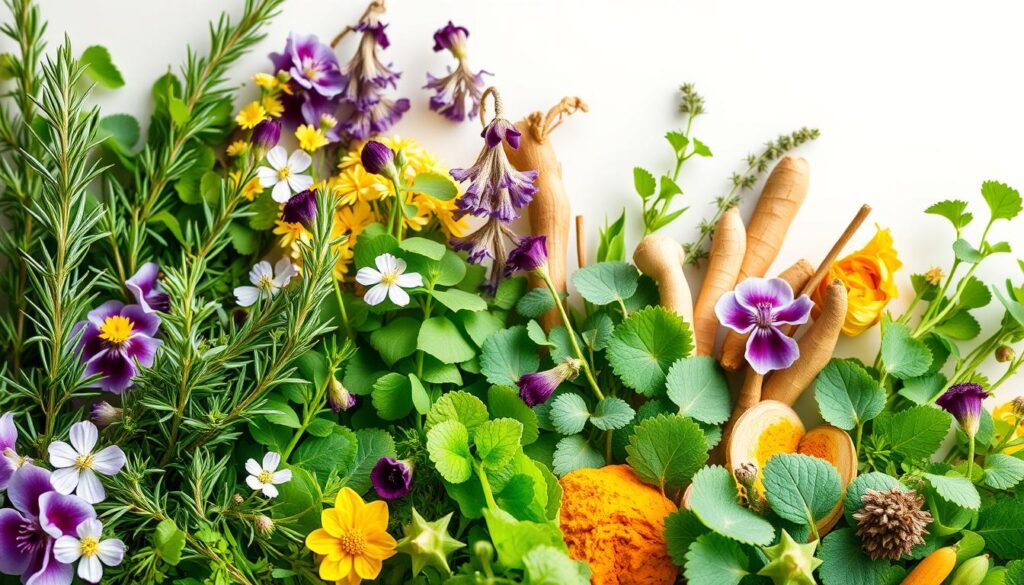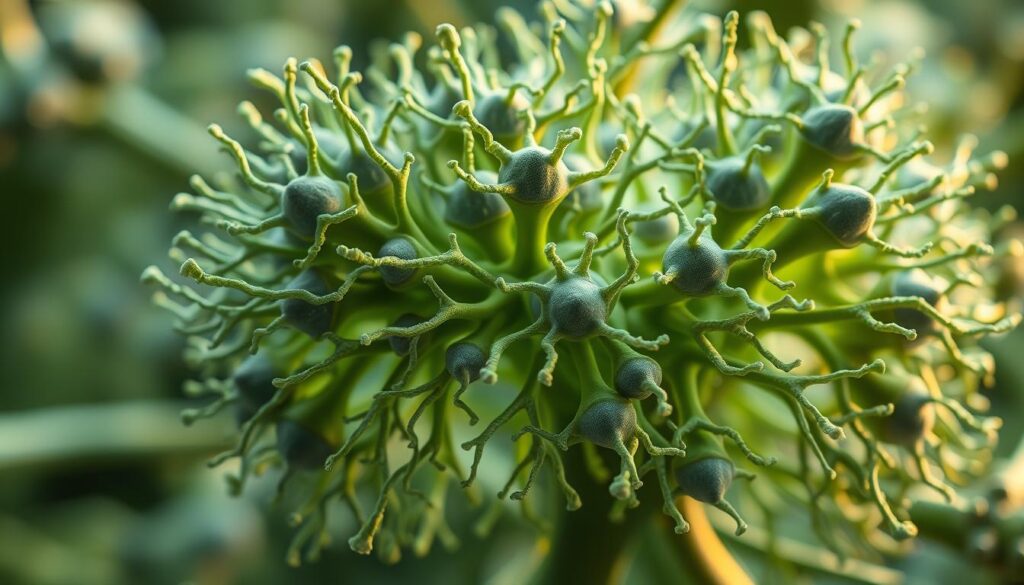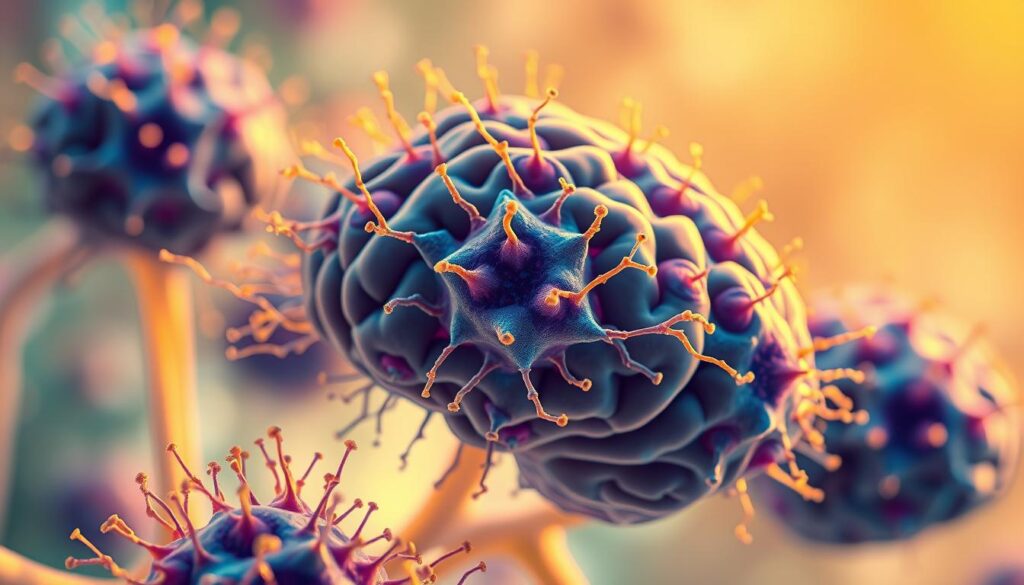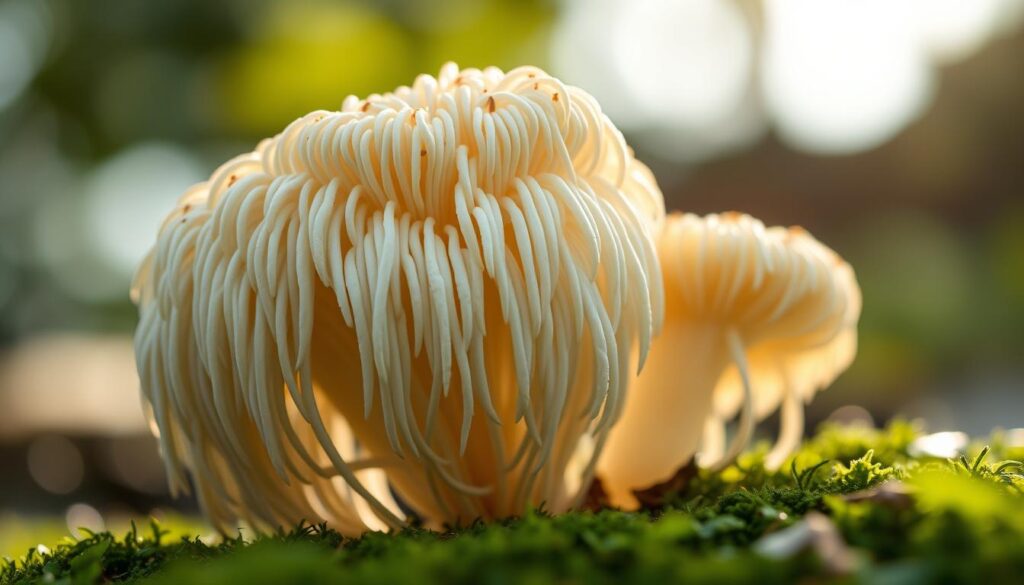Have you ever walked into a room and forgotten why you went there? Discover how natural plant remedies can restore your mental sharpness and help you reclaim the cognitive clarity you deserve.
Millions of Americans face brain fog every day. This condition makes it hard to focus, remember things, and make decisions. Simple tasks at work or home become a challenge.
Our modern lifestyle is perfect for mental cloudiness. Stress, bad sleep, and processed foods lead to cognitive decline. Many feel stuck in a cycle of mental exhaustion.

I’ve created a completely FREE guide, easy to understand, just for you. Inside, you’ll discover:
- Simple, science-backed daily routines that improve focus.
- Natural nutrition tips to support clear thinking.
My top product recommendations — carefully selected to truly help you.
Science shows herbal medicine can help. Certain plants have compounds that boost brain health naturally. These natural remedies offer hope for those looking for mental clarity without synthetic drugs.
For centuries, traditional cultures have used plants for mental health. Now, science backs up their effectiveness in improving thinking. The way to sharper thinking might be simpler than you think.
.
Key Insights: Natural Remedies for Brain Fog & Cognitive Enhancement Brain fog
- Brain fog affects millions of Americans and impacts daily productivity significantly
- Natural herbal remedies provide science-backed solutions for cognitive enhancement
- Plant-based treatments offer alternatives to synthetic medications for mental clarity
- Modern research validates traditional uses of herbs for brain health support
- Specific botanical compounds can improve concentration, memory, and focus naturally
- Lifestyle factors like stress and diet contribute to mental cloudiness and fatigue
Understanding Brain Fog and Its Impact on Daily Life
Brain fog is a mix of symptoms that messes with our daily lives. It affects millions worldwide, making it hard to work, connect with others, and enjoy life. Finding natural herbal ways to clear the mind is key for many.
Brain fog is more than just forgetting things. It makes it tough to do our jobs, talk to people, and reach our goals. Many are looking for a remedy that works.

What Is Brain Fog and Its Common Symptoms
Brain fog makes our minds feel foggy and hard to focus. It shows up in many ways, from mild to severe. Common signs include trouble concentrating, feeling tired, and processing information slowly.
People with brain fog often have trouble finding the right words. Simple tasks become hard. Forgetfulness is a big problem, affecting both short and long-term memory.
Other common symptoms include:
- Difficulty making decisions or solving problems
- Feeling mentally exhausted after minimal cognitive effort
- Trouble organizing thoughts or following conversations
- Reduced ability to multitask effectively
- Persistent feelings of mental sluggishness
Memory loss often goes hand in hand with brain fog. This can hurt work and personal life, leading many to seek natural treatments.
Root Causes of Brain Fog: Understanding Cognitive Impairment & Its Origins
Many things can cause brain fog and cognitive problems. Chronic stress and poor sleep are big culprits. They mess with our brains.
Not getting enough nutrients is also a big problem. Lack of vitamins and minerals hurts our brain health. B vitamins, omega-3s, and antioxidants are especially important.
Hormonal imbalances can also cause brain fog. Issues like thyroid problems and blood sugar changes can make thinking hard. Many turn to herbal remedies for help.
| Cause Category | Specific Factors | Impact Level | Natural Solutions |
|---|---|---|---|
| Lifestyle Factors | Poor sleep, chronic stress, sedentary behavior | High | Sleep hygiene, stress management, exercise |
| Nutritional Issues | Vitamin deficiencies, poor diet, dehydration | Moderate to High | Balanced nutrition, supplements, hydration |
| Medical Conditions | Thyroid disorders, autoimmune diseases, infections | High | Medical treatment, supportive herbs |
| Environmental Toxins | Heavy metals, chemicals, pollution | Moderate | Detoxification, antioxidant support |
Health issues like autoimmune diseases and infections can also cause brain fog. These cases often need a mix of medical and natural remedy solutions.
Mental Fatigue's Impact on Your Central Nervous System & Brain Function
Mental fatigue messes with our central nervous system. It affects how brain cells talk to each other. When our brains get too stressed, we make fewer neurotransmitters. This affects our mood, focus, and how fast we process information.
When we’re mentally exhausted, our brain’s energy systems fail. Our cells don’t get the energy they need to work well. This is why we feel so tired with brain fog.
Inflammation in the nervous system is another big problem. It damages our brain’s pathways and messes with how it works. Neuroinflammation often leads to memory loss and thinking problems.
Our brain’s blood flow also gets affected. Less blood means less oxygen and nutrients for our brain cells. This makes our thinking problems worse and slows us down.
Our nervous system’s stress response gets messed up with chronic mental fatigue. This creates a cycle where stress makes brain fog worse, and brain fog makes stress worse. Breaking this cycle often needs targeted help, like natural herbal solutions that support our nervous system.
Understanding how brain fog works helps explain why treating it fully is best. Fixing many problems at once is the best way to restore our minds and keep them healthy for the long term.
The Science Behind Herbal Medicine for Cognitive Function
Modern science shows how herbal compounds boost cognitive function. These plant medicines have special molecules that interact with brain chemistry. They help improve mental clarity and focus.
Herbal medicine’s success depends on reaching the brain. Many herbs have small molecules that can cross the blood-brain barrier. This barrier keeps out harmful stuff but lets good stuff in.

How Natural Remedies Support Brain Health
Natural remedies protect and improve brain function at the cellular level. They support the production of neurotransmitters. These messengers help brain cells talk to each other.
Herbs also boost blood flow to the brain. This means more oxygen and nutrients for brain cells. It helps remove waste that can slow down thinking.
Many herbs increase brain-derived neurotrophic factor (BDNF). This protein helps grow new brain cells and strengthen connections. More BDNF means better memory and learning.
Ready to improve your brain function in a natural way?
Antioxidant Properties and Anti-inflammatory Effects
Herbs protect the brain from free radicals. These unstable molecules damage brain cells over time. Antioxidants stop free radicals before they harm cells.
Chronic brain inflammation hurts nervous system function. It messes with neurotransmitters and communication. Many herbs have anti-inflammatory compounds that reduce this inflammation.
The table below shows key mechanisms through which herbs support brain health:
| Mechanism | Function | Brain Benefit | Example Compounds |
|---|---|---|---|
| Antioxidant Activity | Neutralizes free radicals | Prevents cell damage | Flavonoids, Polyphenols |
| Anti-inflammatory | Reduces neuroinflammation | Improves neural communication | Curcumin, Ginsenosides |
| Circulation Enhancement | Increases blood flow | Better oxygen delivery | Ginkgolides, Terpenes |
| Neuroprotection | Protects brain cells | Prevents cognitive decline | Bacosides, Saponins |
These scientific mechanisms explain why natural remedies fight brain fog. The compounds work together to support brain function. This multi-target approach makes herbal medicine great for cognitive enhancement.
Ginkgo Biloba: Enhancing Blood Flow and Cognitive Performance
Ginkgo biloba is a top herb for improving brain function and reducing brain fog. It’s an ancient tree with special compounds that help the brain. Modern studies back up its traditional uses for better mental clarity and brain function.
The herb boosts blood flow to the brain. This means more nutrients and oxygen for brain cells. Many people notice better focus and thinking within weeks of using ginkgo

Ginkgo Biloba Extract: Key Active Compounds for Brain Health
Ginkgo biloba extract has two main types of active compounds. Flavonoids make up about 24% and act as antioxidants. They protect brain cells from damage.
The second group is terpenoids, like ginkgolides and bilobalide, making up about 6% of extracts. Terpenoids help blood flow by making it thinner and preventing clots.
Together, these compounds work better than alone to clear brain fog. The 24:6 ratio of flavonoids to terpenoids is key for effective ginkgo products.
Ginkgo's Impact on Brain Cells: Improving Circulation for Mental Clarity
Ginkgo biloba boosts brain circulation in several ways. It widens blood vessels, letting more blood reach brain tissue. This is great for small capillaries that feed neurons.
The extract also makes blood flow easier through narrow vessels. This helps brain cells get the nutrients they need. Improved circulation can also reduce mental fatigue.
Studies show ginkgo can increase brain blood flow by up to 20% in healthy adults. This often leads to better concentration and less mental fog within a month.
Ginkgo Biloba: Clinical Evidence, Dosage, and Enhancing Cognitive Function
Many studies support ginkgo biloba’s benefits for the brain. A review of 40 studies found it improves memory and attention. It’s especially helpful for age-related cognitive impairment.
Most research uses 120-240 mg of standardized extract daily, split into two or three doses. The best dose for mental clarity is usually 120-160 mg a day. Taking it with meals can help avoid stomach issues.
Choosing a high-quality ginkgo supplement is crucial. Look for products with 24% flavonoids and 6% terpenoids. These levels ensure the best cognitive benefits.
Gotu Kola: Traditional Herb for Mental Clarity
Traditional healers in Asia have known about Gotu Kola’s power for a long time. It’s known as Centella Asiatica and is a natural way to improve brain function. It’s a gentle but effective way to keep your mind sharp.
Studies back up what ancient healers said. Gotu Kola has special compounds that boost brain connections. It also protects brain cells and improves blood flow to the brain.

Gotu Kola: Historical Uses in Traditional & Holistic Medicine
Ayurvedic medicine has used Gotu Kola for over 3,000 years. It’s called “Brahmi”, meaning the herb of enlightenment. It’s known for improving memory and focus.
In Traditional Chinese Medicine, Gotu Kola is for longevity and mental health. It’s called the “fountain of life” because it slows down cognitive decline. Chinese herbalists mix it with other herbs for a mental boost.
Indonesian folk medicine uses Gotu Kola for mental clarity. Local healers make fresh leaf preparations. They help keep the mind sharp and balanced.
Gotu Kola: Supporting Nervous System Function for Clearer Thinking
Gotu Kola helps the nervous system in many ways. Its compounds grow brain connections. This means better brain function and thinking speed.
It keeps neurotransmitter levels healthy, especially for memory. It boosts acetylcholine, important for learning. This is without the side effects of synthetic drugs.
Gotu Kola also protects brain cells from harm. It’s good for keeping the mind sharp as we age. It’s a natural way to fight mental decline.
Proper Preparation and Usage Guidelines
Gotu Kola can be prepared in different ways. Fresh leaves are the most potent. Start with 2-4 leaves a day, increasing as needed.
Dried powder is convenient and lasts longer. Take 500-1000mg daily, split between meals. It’s great for daily brain support.
| Preparation Method | Dosage Range | Best Time to Take | Duration of Effects |
|---|---|---|---|
| Fresh Leaves | 2-4 leaves daily | Morning with breakfast | 4-6 hours |
| Dried Powder | 500-1000mg daily | Split between meals | 6-8 hours |
| Standardized Extract | 100-200mg daily | Morning on an empty stomach | 8-12 hours |
| Traditional Tea | 1-2 cups daily | Between meals | 3-4 hours |
Standardized extracts have the most active compounds. They have 10-20% triterpenoids. Take 100-200mg daily, on an empty stomach for best absorption.
Traditional tea is also popular. Steep 1-2 teaspoons in hot water for 10-15 minutes. It’s a tasty way to get benefits all day.
Bacopa Monnieri: Memory Enhancement and Cognitive Support
Bacopa Monnieri, also known as Brahmi, is a breakthrough in natural memory improvement. This aquatic herb has caught the eye of researchers worldwide for its ability to boost cognitive function. Unlike other herbs like gotu kola or Biloba, Bacopa Monnieri focuses on memory formation and retention.
The herb supports brain cells through various pathways. Studies show it can significantly improve learning and information processing speed.

Herbs for Brain Fog: Bacosides and Neuroprotective Benefits
The power of Bacopa Monnieri comes from its active compounds called bacosides. These saponins offer unique neuroprotective benefits, setting them apart in cognitive enhancement.
Bacopa enhances synaptic transmission between brain cells. This improves communication in the brain, leading to better memory and recall.
The neuroprotective effects include:
- Antioxidant protection against free radical damage
- Reduced inflammation in neural tissues
- Enhanced protein synthesis in brain cells
- Improved dendrite growth for better neural connections
Research shows bacosides can cross the blood-brain barrier effectively. This allows them to protect brain cells from oxidative stress and age-related decline.
Ready to experience clearer thinking and better memory? Start incorporating evidence-based herbal solutions into your daily routine today for optimal cognitive enhancement and mental clarity.
Systematic Review and Meta-Analysis Results
Multiple systematic reviews have looked into Bacopa Monnieri’s effects on cognitive function. These comprehensive analyses provide strong evidence for its memory-enhancing properties.
A major meta-analysis reviewed 12 randomized controlled trials involving over 1,000 participants. The results showed consistent improvements in several cognitive areas compared to placebo groups.
Key findings from systematic reviews include:
- Memory improvement in both healthy adults and elderly populations
- Enhanced attention span and focus during cognitive tasks
- Faster information processing speed in learning situations
- Better working memory performance across age groups
The research shows Bacopa Monnieri works differently than gotu kola or biloba extracts. While those herbs improve circulation, Bacopa directly enhances memory formation.
Studies consistently show benefits after 8-12 weeks of regular supplementation. This timeline reflects the herb’s ability to create lasting changes in brain cell function.
Long-term Effects on Brain Function
Long-term supplementation with Bacopa Monnieri produces remarkable changes in brain function. Extended-use studies reveal it promotes neuroplasticity and supports healthy brain aging.
Neuroplasticity refers to the brain’s ability to form new neural connections. Bacopa Monnieri enhances this process by stimulating the growth of dendrites and axons in brain cells.
Long-term benefits include:
- Sustained memory improvement that continues even after stopping supplementation
- Enhanced learning capacity for new information and skills
- Better stress resilience in cognitively demanding situations
- Reduced age-related cognitive decline in older adults
Studies spanning 6-12 months show that Bacopa Monnieri creates structural changes in the brain. These modifications support improved cognitive function that persists over time.
The herb’s ability to protect brain cells from damage makes it valuable for long-term brain health. Unlike stimulants that provide temporary cognitive boosts, Bacopa builds lasting improvements in mental performance.
Research suggests combining Bacopa with other herbs like gotu kola may provide synergistic effects. However, Bacopa alone delivers significant cognitive benefits when used consistently over several months.
Rhodiola Rosea: Combating Mental Fatigue and Cognitive Decline
This Arctic root is known for boosting brain power under stress. Rhodiola Rosea thrives in Siberia, Scandinavia, and Alaska’s harsh mountains. Its survival in extreme conditions gives humans powerful compounds to fight stress.
Rhodiola shows results in days, unlike other herbs that take weeks. It targets stress hormones, not just blood flow. Its unique compounds, rosavin, and salidroside, directly affect brain chemistry.

Adaptogenic Properties for Stress Management
Rhodiola Rosea acts as an adaptogen, helping the body stay balanced under stress. It controls cortisol levels and supports healthy stress responses. This prevents mental fog and cognitive decline.
It works by adjusting neurotransmitter activity in the brain. Rhodiola keeps serotonin, dopamine, and norepinephrine levels right during tough times. These neurotransmitters are key for mood, focus, and mental clarity.
Regular use of Rhodiola can boost stress tolerance by up to 40%. It trains the nervous system to handle daily pressures better. This leads to better cognitive health and mental performance.
Reducing Mental Exhaustion and Brain Fog
Mental exhaustion comes from too much stress in the brain. Rhodiola supports brain cells’ energy production. This improves mental stamina and reduces fatigue.
Its salidroside content helps clear brain fog by improving oxygen use in brain tissues. This clears mental cloudiness during stressful times. Users often feel more alert and focused within a week.
Clinical trials show Rhodiola can cut mental fatigue scores by 30-50% in four weeks. It’s great for those with burnout or chronic stress-related cognitive symptoms. Unlike stimulants, Rhodiola provides lasting energy without jitters.
Optimal Timing and Dosage Protocols
Morning is the best time to take Rhodiola for its energizing effects. It aligns with natural cortisol rhythms and avoids sleep disruption. Most recommend taking it 30 minutes before breakfast on an empty stomach.
The standard dose is 200-400mg daily of extract with 3% rosavin and 1% salidroside. Start with 200mg and increase as needed. Higher doses can cause overstimulation in some.
For long-term use, cycling Rhodiola is best. Follow a 6-8 week on, 2-3 weeks off pattern. This keeps the herb effective and prevents tolerance.
Lion's Mane Mushroom: Promoting Neurogenesis and Brain Health
Lion’s Mane mushroom is a unique nootropic fungus that boosts brain health. It has compounds that help grow new brain cells and repair damaged ones. This mushroom offers direct neuroprotective benefits that improve long-term brain function.
Research shows Lion’s Mane mushroom has special compounds that reach the brain. These compounds help grow new nerve cells and protect the brain from damage. The mushroom also has anti-inflammatory properties that protect the brain.

Unique Compounds Supporting Nerve Growth
The main compounds in Lion’s Mane mushroom are hericenones and erinacines. These molecules help grow nerve cells in the brain. Nerve growth factor (NGF) is key for neuron growth and survival.
Hericenones are found in the mushroom’s fruiting body and can get into the brain. They help make NGF and create new brain connections. This boosts cognition and brain function.
Erinacines are in the mushroom’s mycelium and are even more powerful. They help grow new brain cells and fix damaged ones. Together, hericenones and erinacines support brain health.
Benefits for Cognitive Health and Memory
Lion’s Mane mushroom improves learning and memory. Studies show it helps grow new brain cells. This supports better thinking and memory.
It also makes memory better and helps with information processing. This is great for keeping a sharp cognition as we age.
Lion’s Mane mushroom protects against age-related brain decline. Its anti-inflammatory compounds reduce brain inflammation. This helps keep the mind clear and sharp over time.
It also improves blood flow to the brain. This brings more oxygen and nutrients to brain cells. This helps the brain work better and grow new connections.
Available Forms and Preparation Methods
Lion’s Mane mushroom is available in many forms. You can use fresh mushrooms in cooking or dried powder in drinks. Standardized extracts are also available for easy dosing.
Fresh mushrooms can be sautéed or roasted for a tasty meal. They have a mild flavor that goes well in many dishes. Cooking makes the nutrients easier to absorb.
Powdered Lion’s Mane can be added to smoothies or coffee for daily cognition support. It can also be used in soups or baked goods. Start with a small amount to get used to the taste.
To make tea, steep dried Lion’s Mane in hot water for 10-15 minutes. This method preserves the mushroom’s nutrients. You can add honey or lemon to improve the taste.
Top Herbs for Brain Fog: A Comprehensive Selection Guide
Understanding the wide range of herbs for brain health is key to beating brain fog. These natural remedies boost brain function and fight mental fatigue. Each herb offers unique benefits for different cognitive needs and symptoms.
Here are some top herbs for better mental clarity. They’ve been studied for their ability to improve cognitive performance and brain function.
Rosemary for Enhanced Memory and Focus
Rosemary boosts memory and focus with its powerful compounds. Its rosmarinic acid stops an enzyme that breaks down a key neurotransmitter. This neurotransmitter is vital for memory and learning.
Research shows rosemary oils can boost cognitive performance quickly. It increases blood flow to the brain and protects neurons. Regular use keeps focus sharp all day.
Sage for Cognitive Enhancement and Mental Clarity
Sage supports brain function, especially in older adults. It has compounds that help keep acetylcholine levels high in the brain.
Studies show that sage improves memory and reduces mental fatigue in all ages. Its antioxidants protect brain cells from damage. Sage tea or extracts offer the best benefits.
Peppermint for Immediate Mental Alertness
Peppermint quickly wakes up the mind with its menthol and volatile compounds. These substances give immediate alertness and reduce drowsiness. Its cooling effect refreshes a tired mind.
Peppermint’s aroma boosts cognitive performance and quickens reactions. Research shows inhaling peppermint oil increases brain oxygen. This helps fight mental fatigue and keeps focus sharp.
Peppermint tea or essential oil aromatherapy works fast. It’s great for afternoon slumps and focus issues.
Turmeric for Anti-inflammatory Brain Support
Turmeric’s curcumin crosses the blood-brain barrier for direct brain benefits. It reduces brain inflammation and supports the central nervous system. Curcumin promotes healthy brain cell function.
Turmeric’s anti-inflammatory effects clear the mental fog caused by inflammation. It works well with other herbs for comprehensive brain support. Regular use keeps the mind clear and sharp.
For better absorption, take turmeric with black pepper or as a curcumin extract. This boosts its cognitive benefits.
Addressing Lack of Sleep and Its Impact
Lack of sleep makes herbal brain boosters less effective. Poor sleep messes with neurotransmitters and memory. This makes brain fog hard to shake, even with herbs.
Good sleep helps the brain use herbal compounds better. Deep sleep cleanses the brain and strengthens connections. Herbs work best when the brain gets enough rest.
Good sleep habits boost herbal benefits a lot. Keeping a regular sleep schedule helps the brain work better. Adults need 7-9 hours of sleep each night for the best brain function.
B Vitamins and Nutritional Support
B vitamins boost herbal brain enhancers in many ways. They help make neurotransmitters and energy in brain cells. Without enough B vitamins, even strong herbs can’t help much.
The B-complex vitamins work together to improve brain function and help herbs get absorbed. Vitamin B12 helps make myelin, and folate makes neurotransmitters. Thiamine and riboflavin help cells make energy for thinking.
Lack of nutrients blocks the benefits of herbs. B vitamins help herbs get into the brain better. This makes natural brain enhancers work even better.
Exercise and Blood Flow to the Brain
Exercise boosts blood flow to brain areas for memory and thinking. This helps herbal compounds reach the brain better. Exercise also makes more BDNF, which is good for the brain.
Cardio exercises increase blood flow by up to 30% in key brain areas. This means herbs get to their targets more easily. Exercise and herbs together have bigger benefits.
Exercise types offer different brain benefits with herbs. Aerobic exercises improve blood flow and oxygen. Resistance training helps the brain adapt and balance hormones, making herbs more effective.
| Lifestyle Factor | Cognitive Benefit | Herbal Synergy | Implementation Time |
|---|---|---|---|
| Quality Sleep (7-9 hours) | Memory consolidation, neurotransmitter balance | Enhanced herb absorption and utilization | 2-4 weeks |
| B Vitamin Supplementation | Neurotransmitter synthesis, energy metabolism | Improved herb transport and effectiveness | 4-8 weeks |
| Regular Exercise (150 min/week) | Increased blood flow, BDNF production | Better herb delivery to brain tissue | 2-6 weeks |
| Stress Management | Reduced cortisol, improved focus | Optimized herb receptor sensitivity | 3-8 weeks |
A systematic review and meta-analysis found 40-60% better brain improvements with lifestyle and herbs together. This shows lifestyle choices help herbs work their best.
Safety Guidelines and Potential Herb Interactions
Before adding herbs to your brain fog treatment, it’s key to follow safety steps. Natural remedies are safer than man-made ones but need careful use. Knowing the good and bad of herbal supplements is part of a holistic approach to brain health.
Choosing the right herbs is just the start. You also need to check your health, meds, and risks. This careful check makes sure herbs help, not harm, your health plan.
Consulting Healthcare Providers Before Starting
Getting advice from doctors is crucial for safe herbal use. Doctors know how herbs might interact with your health. They can see if herbs fit with your health goals and meds.
People with chronic conditions need extra care before starting herbs. Conditions like diabetes or heart disease can change how herbs work. Medical supervision is key, especially for lack of sleep issues.
Doctors can also figure out if brain fog is a treatable health issue. Sometimes, brain fog comes from nutrient gaps, hormonal imbalances, or drug side effects. These need medical help, not just herbs.
“The integration of herbal medicine with conventional healthcare requires open communication between patients and providers to ensure safe and effective treatment outcomes.”
Common Side Effects and Precautions
Most herbs for brain health cause mild side effects, but everyone reacts differently. You might feel stomach upset, headaches, or dizziness at first. These usually go away as your body gets used to the herbs.
Ginkgo biloba might upset your stomach or increase your risk. Start with small doses and increase slowly. Taking herbs with food can also help avoid stomach problems.
Bacopa monnieri might make you feel tired or nauseous, especially on an empty stomach. Rhodiola rosea can make you too energized if taken too close to bedtime. Watch how your body reacts in the first few weeks to spot any bad effects early.
Allergic reactions are rare but can happen with any supplement. Look out for skin rashes, trouble breathing, or swelling. Seek medical help right away if you have these symptoms after taking herbs.
Medication Interactions to Consider
Herbs can interact with prescription meds, changing how they work or increasing side effects. Blood thinners and ginkgo biloba can be a bad mix, raising bleeding risk.
Herbs like Rhodiola rosea can affect antidepressants, changing serotonin levels. This can impact how psychiatric meds work. Keep a close eye on how your body reacts when mixing herbs and meds.
Diabetes meds might need adjusting with certain herbs that affect blood sugar. Some brain health herbs can lower blood sugar too much, especially with diabetes drugs.
- Blood pressure meds can interact with herbs that improve blood flow
- Seizure meds need careful checks with brain health supplements
- Immune-suppressing drugs might clash with herbs that affect the immune system
- Herbs that stimulate can affect sleep meds
A holistic approach to treating brain fog looks at your whole health. This includes fixing lack of sleep, eating foods with antioxidant properties, and getting the right nutrients with herbs.
Regular check-ins with doctors are important to keep herbal treatments safe and effective. You might need to make changes as your health evolves or your body adapts to herbs. This ongoing check ensures a balance between natural healing and safety.
Creating Your Personalized Natural Brain Fog Protocol
Creating a natural protocol for brain fog means understanding your unique challenges. It’s about picking the right herbs for you. Everyone’s reasons and symptoms for brain fog are different. A custom plan helps more and reduces side effects.
Building your protocol takes time and careful planning. You aim to improve brain function with herbs and lifestyle changes. This approach tackles both immediate symptoms and long-term health.
Selecting the Right Herbs for Your Specific Needs
Choosing the right herbs depends on your symptoms and health. Different issues need different herbs. Knowing your challenges helps find the best options.
Consider these key factors when selecting herbs:
- Primary symptoms: Memory issues, lack of focus, or mental fatigue
- Underlying causes: Stress, poor sleep, or inflammation
- Current health status: Existing conditions and medications
- Lifestyle factors: Work demands, sleep patterns, and stress levels
For memory issues, Bacopa monnieri and Lion’s mane mushrooms are great. Stress? Try Rhodiola rosea or Gotu kola. For circulation, Ginkgo biloba is best.
Start with one or two herbs at a time. This lets you see how they work for you.
Starting Your Herbal Regimen Safely
Starting an herbal protocol needs careful planning. Safety is key when trying new supplements. Doing it right reduces risks and boosts benefits.
Follow these essential steps for safe implementation:
- Start with lower doses: Begin with 25-50% of recommended dosages
- Introduce one herb at a time: Wait 3-5 days between additions
- Monitor for reactions: Watch for any adverse effects or sensitivities
- Maintain consistency: Take herbs at the same time daily
- Document everything: Keep detailed records of doses and effects
Quality is crucial when choosing herbal supplements. Look for reputable brands with third-party testing. Low-quality products can be harmful.
When to take your herbs matters. Some work better on an empty stomach, others with food. Ginkgo biloba and Bacopa monnieri go with meals. Rhodiola rosea is best on an empty stomach.
Monitoring Progress and Adjusting Your Approach
Tracking your progress is key to success. Cognitive improvements take time. Regular checks help you stay on track.
Effective monitoring includes both subjective and objective measures. Keep a daily journal of your energy, focus, and memory. Rate these on a scale of 1-10 for consistent tracking.
Key metrics to monitor include:
- Mental clarity: Ability to think clearly and make decisions
- Focus duration: How long you can concentrate on tasks
- Memory function: Recall of recent events and information
- Energy levels: Mental stamina throughout the day
- Sleep quality: Restfulness and morning alertness
Most people see improvements in 2-4 weeks. But, some herbs like Bacopa monnieri may take 8-12 weeks. Be patient.
Adjust your protocol based on results and changing needs. If certain herbs don’t work, try others. Sometimes, combining herbs or adding lifestyle changes helps more.
Regularly check your protocol every 4-6 weeks. This ensures you’re using what works best. Those with ongoing brain fog may need to adjust often as their health changes.
Use these Herbs with a Healthy Lifestyle
Natural herbs are a strong way to fight brain fog and bring back mental clarity. Studies show that Ginkgo Biloba, Bacopa Monnieri, and others help the brain work better. They do this by improving blood flow, reducing inflammation, and supporting brain flexibility.
For the best results, use these herbs with a healthy lifestyle. Getting enough sleep, exercising, eating right, and managing stress are key. Everyone reacts differently to herbs, so finding what works for you is important.
Start with one or two herbs at a time to see how your body reacts. It’s crucial to pick high-quality supplements from trusted brands. Taking them regularly will help you think more clearly and perform better.
Ready to improve your thinking? Talk to a healthcare expert about adding these herbs to your routine. Your brain will thank you for the natural support these herbs offer.
